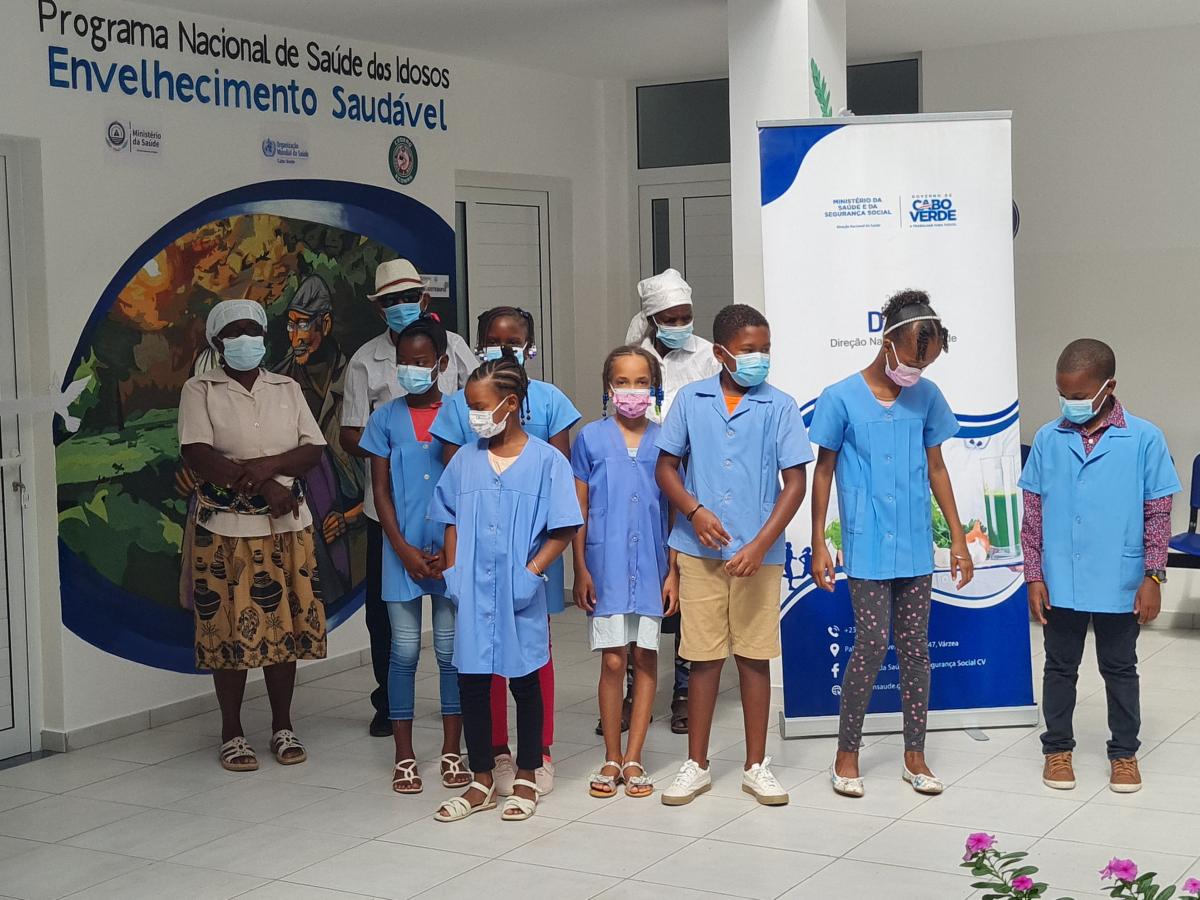NYU School of Global Public Health
Addressing The Double Burden Of Diabetes And Tuberculosis In Uganda Using A Participatory Approach (WHO Global NCD Platform Young Researchers Programme)
Health Literacy Development
07 May 2024
World Health Organization | 23 Oct 2023
Cabo Verde’s health and social assistance systems need to adapt to an ageing population in order to provide relevant prevention and health promotion programmes and curative services. A more agile and responsive health and social assistance system will address the growing and varying needs of the elderly. The Ministry of Public Health (MoPH) requested WHO Cabo Verde’s technical cooperation to help implement strategies aimed at this demographic. The Integrated Care for Older People (ICOPE) guidance was considered an agile and appropriate strategy, presenting six comprehensive and integrated domains of intervention. With its implementation, health service providers have become aware of the needs of the elderly – creating dedicated care spaces, establishing elderly service days and visiting communities across the pilot health centres. These initial steps will improve the quality of elderly care for this population, in view of early signs of increased morbidity among the elderly.
How did Cabo Verde, with the support of the WHO Secretariat, achieve this?
People globally are living longer. Most people born today can expect to live into their sixties and beyond. Ageing is a biological event, the result of an accumulation of molecular and cellular damage over time leading to a gradual decrease in physical and mental capacity, along with a growing risk of disease 1. In Cabo Verde, life expectancy in 2020 was 75 years of age, just above the global average 2. This has been consistently increasing over the past few decades, bringing with it health system challenges. The population above 60 years of age has been growing: from 7.6% in 2010 to 10.0% in 2021 3. This population represents an increasing proportion of the burden of noncommunicable diseases (NCD), which cause roughly 60% of all deaths in the country 4,5. The MoPH created the national programme for the health of the elderly in 2015 and developed its first strategic plan in 2017. The programme and strategy were later aligned to the WHO Decade on Healthy Ageing 2021–2030.
In August 2019, WHO Cabo Verde was invited by the MoPH to support this plan and presented the ICOPE guidelines to the national authorities as an agile and efficient approach. The ICOPE proposes evidence-based recommendations for health care professionals to prevent, slow or reverse declines in the physical and mental capacities of older people. These include six interventional domains related to limited mobility, depressive symptoms, cognitive decline, malnutrition, visual impairment and hearing loss. COVID-19 disrupted implementation of ICOPE, but from September 2021 WHO Cabo Verde organized training sessions to orient stakeholders on the steps to take for healthy ageing. WHO Cabo Verde also convened politicians, health professionals, social workers, researchers, community representatives and the elderly to understand and implement this approach. This was an important step towards mutual ownership and sustainability of the actions and their results.
A total of 320 professionals from different fields were trained, including from universities and nongovernmental organizations (NGOs). Among them were 50 professional caregivers from the Ministry of Family Social Inclusion and Development, working as part of the COVID-19 response to provide social assistance to vulnerable populations, including the elderly. The training sessions applied all six domains to identify the state of health and well-being of the elderly and then to make appropriate referrals to health services.

To monitor implementation and outcomes, WHO Cabo Verde is following three pilot health centres: Órgãos, São Domingos and Ribeira Grande de Santiago. All have been renovated to provide adequate health care space and have started to register this population using disaggregated data for monitoring ICOPE. São Domingos Health Centre was the first to apply ICOPE within its municipality, which has 14 102 inhabitants. In this pilot survey, 1257 people aged 60 and above were registered for the first assessment. Many of them were found to have chronic conditions such as hypertension and type 2 diabetes with complications, 28% with cognitive deficit and 17% with reduced mobility, risk of malnutrition and risk of deafness. This information was used to form the baseline which would be used to demonstrate the results of interventions carried out in this population. A further 40 health professionals from the São Domingos Health Centre were trained in ICOPE and interventions piloted in 81 elderly individuals from the first assessment based on their identified individual needs. Initial reports show improved access and quality of service along with bespoke patient centred care in this population.
'' The implementation of the ICPOE strategy allowed us to improve the elderly clinical evaluation and functional assessments.”
Maria Natalina Silva, National Programme for the Elderly Coordinator
During the 3rd Congress of Good Practices in Health in 2022, Cabo Verde presented preliminary data on ICOPE implementation and was awarded third place in recognition of the initiative and progress made in the West African region.
WHO Cabo Verde’s leadership has been critical in implementing the ICOPE, through technical support for implementing ICOPE guidelines and developing and updating policies and plans aimed at healthy ageing. Results of these actions will be disseminated to inform further government action
“This impact story was published as part of the WHO country stories: delivering for all report, which presents a snapshot of how WHO has delivered on its mission in countries and contributed to health outcomes across a wide range of issues during 2022-2023.”